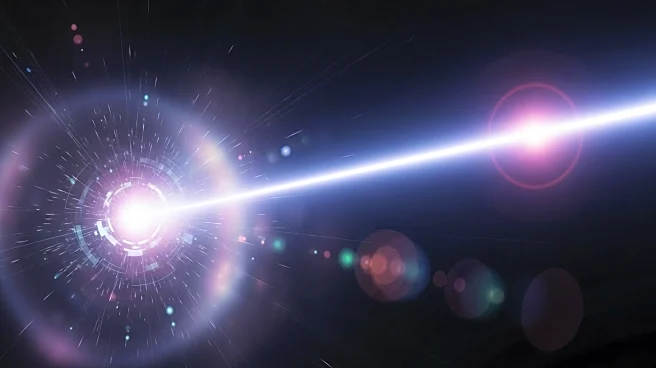What's Happening?
The University of Michigan's ZEUS facility has achieved a significant milestone by conducting its first experiment at 2 petawatts, making it the most powerful laser in the United States. Funded by the National Science Foundation, ZEUS is a user facility that invites global research teams to conduct cutting-edge experiments. The laser's immense power holds promise for advancements in various scientific fields, including medicine, national security, and materials science. ZEUS aims to generate electron beams with energies comparable to large particle accelerators, facilitating experiments that explore high field science. The facility is preparing for a landmark experiment that could simulate zettawatt-scale laser interactions, potentially leading to significant discoveries and innovations.
Why It's Important?
The achievement of the ZEUS laser at 2 petawatts represents a major advancement in high-power laser technology, opening new frontiers in scientific research. This development could lead to breakthroughs in imaging techniques for medical diagnostics, enhancing treatments and potentially driving economic growth. The ability to produce high-energy beams in a more compact and efficient manner compared to traditional accelerators could revolutionize particle physics. The democratized access to ZEUS's cutting-edge technology allows a diverse array of experiments, fostering scientific progress and reinforcing the United States' position as a leader in scientific research.
What's Next?
ZEUS is gearing up for a landmark experiment expected to occur later this year, where accelerated electrons will collide with counter-propagating laser pulses. These collisions will simulate interactions with a zettawatt-scale laser, potentially leading to advancements in various technological domains. The facility's journey toward achieving full power continues, with possibilities for groundbreaking discoveries expanding. The scientific community's enthusiasm for ZEUS's capabilities suggests that further significant research outcomes are anticipated.









